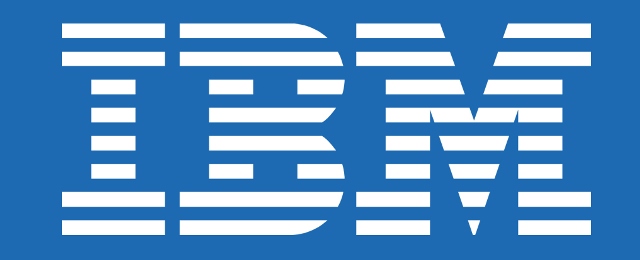Telecom
University of Lagos, U I, others to benefit from IBM’s Quantum Computing Program

IBM has announced the expansion of its quantum computing efforts to Africa in a new collaboration with the University of the Witwatersrand (Wits University) in South Africa.
Wits University is the first African partner on the IBM Q Network and will be the gateway for academics across South Africa and to the 15 universities who are part of the African Research Universities Alliance (ARUA).
“This is the latest outcome of the joint partnership between IBM Research and Wits, which started in 2016 when IBM opened its second lab in Africa in Wits University’s Tshimologong Digital Innovation Precinct in Johannesburg.
“To expand the IBM Q Network to include Wits will drive innovation in frontier-technologies and benefit African-based researchers, academics and students who now have access to decades of quantum computing capabilities at the click of a button,” said Professor Zeblon Vilakazi, Wits Deputy Vice-Chancellor: Research and Postgraduate Affairs.
Quantum computing promises to be able to solve certain problems – such as chemical simulations and types of optimization – that will forever be beyond the practical reach of classical machines.
IBM first made quantum computers available to the public in May 2016 through its IBM Q Experience quantum cloud service and has doubled the power of its quantum computers annually since 2017.
IBM established the IBM Q Network™, a community of Fortune 500 companies, startups, academic institutions and research labs working with IBM to advance quantum computing and explore practical applications for business and science.
Researchers at Wits will investigate the use of quantum computing and machine learning in the fields of cosmology and molecular biology with a specific focus on HIV drug discovery.
The teams will also jointly study quantum teleportation, a field pioneered by IBM Fellow Charles Bennett.
“For Africa to remain competitive for the coming decades we must get the next generation of students quantum ready,” said Dr. Solomon Assefa, Vice President, Emerging Market Solutions and Director, IBM Research – Africa.
As part of the partnership between IBM and Wits, scholars from sixteen ARUA universities including: Addis Ababa University; University of Ghana; University of Nairobi; University of Lagos; University of Ibadan; Obafemi Awolowo University lle-Ife; University of Rwanda; University Cheikh Anta Diop; University of Cape Town; University of Kwa-Zulu Natal; University of Pretoria; Rhodes University; University of Stellenbosch; University of the Witwatersrand; University of Dar es Salaam and Makerere University, will have the opportunity to apply for access to IBM Q’s most-advanced quantum computing systems and software for teaching quantum information science and exploring early applications.
To gain access to the IBM Q quantum cloud service, ARUA scholars will be required to submit quality research proposals to a scientific committee of Wits and IBM experts for approval.
“Having access to IBM Q is pivotal for Wits University’s cross-disciplinary research program and allows our researchers in quantum computing, artificial intelligence, and in the broad natural sciences, including in laser technology, quantum optics and molecular design, to leverage the next level of discovery research. It’s envisioned that the first results from this collaboration will be forthcoming in the next two years,” said Vilakazi.
IBM’s recently unveiled IBM Q System One, is the world’s first integrated universal approximate quantum computing system designed for scientific and commercial use.
IBM’s most advanced universal quantum computing systems available through the IBM Q Experience platform.
More than 10 million experiments have run on the IBM Q Experience and users have published over 160 third-party research papers.
Also, developers can work with Qiskit, a full-stack, open-source quantum software development kit, to create and run quantum computing programs.
To further increase skills development, IBM Q is hosting an invite-only Qiskit Camp in South Africa this December for 200 quantum researchers and computer scientists where they will learn in an immersive environment and receive hands-on training.
For more information about the IBM Q Network, as well as a full list of all partners, members, and hubs, visit https://www.research.ibm.com/ibm-q/network/
The agreement with Wits was signed in April 2019.
Telecom
FG Expands 3MTT Programme Across the Country

Dr Bosun Tijani, Nigeria’s minister of communications, innovation, and digital economy, has revealed that the federal government’s 3 Million Technical Talent (3MTT) programme has trained over 135,000 citizens as it moves from pilot to national level.

Tijani announced this in an update on the program’s success, stating that the beneficiaries were trained in three batches.
He also stated that the initiative’s community-based learning tools had provided over 300,000 extra learners with access to digital skills training across the country.
According to the minister, the program has also enabled the creation of about 15,000 job, entrepreneurship, and career development in Nigeria’s developing digital economy.
He further revealed that more than 1.8 million Nigerians are currently in the 3MTT pipeline, as the government works toward its target of equipping three million citizens with in-demand digital skills aligned with local and global labour market needs.
As the programme enters its scale-up phase, Tijani said the government’s focus will shift toward deepening impact rather than just expanding numbers.
Key priorities, he explained, include strengthening the 3MTT alumni community, widening access to economic opportunities and ensuring that skills acquired through the programme translate into measurable outcomes such as jobs, business creation and innovation.
To support this phase, the federal government has introduced the #3MTTImpactChallenge, an initiative aimed at assessing the programme’s real-world impact
Through the challenge, fellows and partners are invited to share personal stories on how 3MTT has shaped their professional journeys as part of a National Impact Reflection exercise.
Participants are expected to share their experiences across social media platforms, with selected winners set to receive prizes including laptops, e-tablets, data bundles and other incentives.
Telecom
Spacecoin Secures Licenses to Roll Out Satellite Connectivity in Nigeria, Kenya

Spacecoin, US-based, has announced the signing of recent agreements with local authorities and operators to launch satellite connectivity pilot projects in Africa.

The initiatives, focused on Kenya and Nigeria, aim to serve areas where terrestrial networks remain limited or unavailable.
n Kenya, Spacecoin has obtained a transmission license from the Communications Authority, allowing it to test satellite-based solutions for connectivity and Internet of Things (IoT) monitoring, particularly in rural and peri-urban areas with limited internet access.
According to the Kenyan regulator, internet penetration remains below 50% of the population, despite mobile penetration exceeding 130%.
In parallel, the company is continuing operations in Nigeria under an existing license issued by the Nigerian Communications Commission (NCC).
This authorization supports initiatives aimed at delivering affordable broadband connectivity to isolated and underserved communities.
Spacecoin’s approach is based on a decentralized satellite network using nanosatellites in low Earth orbit (LEO).
Combined with blockchain-based protocols, this architecture is intended to offer more flexible and cost-effective connectivity services than traditional networks, while also enabling the integration of IoT solutions for a range of uses, from smart agriculture to infrastructure monitoring.
These projects are part of a broader strategy to help narrow Africa’s digital divide, where a significant share of the population still lacks access to reliable internet services.
Satellite technology is increasingly viewed as a complement to terrestrial infrastructure, particularly in hard-to-reach areas where deployment costs and geographic constraints remain high.
Beyond Africa, Spacecoin is also running pilot projects in Asia, working with local partners to test the viability of its model across different regulatory and geographic environments.
According to the company’s management, growing interest from regulators reflects a shift toward solutions capable of reaching populations that have long been excluded from internet access.
Telecom
AVEVA Names Khaled Salah Vice President for Africa to Drive Growth

AVEVA, a global leader in industrial software, driving digital transformation and sustainability, today announces the appointment of Khaled Salah, 37 years old, as Vice President of Africa.

Khaled Salah
In this new role, he will be responsible for about 30 employees to ensure the successful implementation of AVEVA’s growth strategy. Khaled Salah will report directly to Jesus Hernandez, SVP of the EMEA region.
A 15-years + career across different industries and domains
With a MBA in management from the Warwick business school, UK, and a master’s degree in engineering from Ain Shams university in Egypt, Khaled Salah is an active advocate for driving sustainable progress in the industrial sector. With Sustainability in mind, Khaled is keen on making a positive business impact, while fostering progress for people and the planet.
He started his career at Schneider Electric, in 2013 in the global supply chain and evolved through various roles such as Europe procurement and supply chain strategy Manager, and Global Commercial strategy Director for the industrial automation business. Khaled Salah has developed a strategic understanding of all those fields.
After 12 years in Schneider Electric, Khaled joined AVEVA in 2022 to lead AVEVA and Schneider Electric global strategic partnership, across all industries managing a team of 30 people.
He has led the introduction of new AVEVA software solutions to initiate and develop significant growth areas across all Schneider Electric verticals.
Ambitious plans for AVEVA in Africa
In addition to his current role as AVEVA and Schneider Electric partnership Vice-President, Khaled now takes over the management of AVEVA’s activities in Africa.
Jesus Hernandez, SVP of the EMEA region says: “Africa is a strategic region for AVEVA. In this major industrial market, customers, world leaders in the fields of Energy, Metal & Mining, Chemicals, and Water, are looking for AVEVA’s expertise to accelerate and drive their digital transformation and sustainability strategies, as well as their energy transition projects.
“Khaled Salah’s qualities of leadership in a global environment will benefit his team spread across 12 countries including Algeria, Morocco, Egypt, Kenya, Nigeria, and South Africa.”
Motivated by the prospect of capitalizing on the talent of his team to strengthen AVEVA’s presence in Africa in the years to come, Khaled Salah says: “Helping my team realize their professional potential is close to my heart.
“We will work together to support and accelerate the digital transformation of industries in Africa, in particular through CONNECT, our industrial intelligence platform, with the support of our ecosystem of partners. »

 General News2 days ago
General News2 days agoCybersecurity Firm Detects a Wave of Crypto Phishing Following BlockFi Bankruptcy

 News2 days ago
News2 days agoIMF Upgrades Nigeria’s 2026 Growth Projection to 4.4%

 Telecom2 days ago
Telecom2 days agoNCC Unveils Spectrum Roadmap to Power Nigeria’s $1tr Digital Economy

 Telecom2 days ago
Telecom2 days agoNCC Gives Amazon’s Kuiper, BeetleSat Nod to Provide Satellite Broadband Services in Nigeria

 General News2 days ago
General News2 days agoFG Rejects Northern Elders’ Gold Refinery Siting Claim

 News2 days ago
News2 days agoNew Horizons Invests N50m to Empower Almajiris with Skills

 General News2 days ago
General News2 days agoUniversal Insurance to Raise N15bn to Meet Capital Rules

 E-Financial2 days ago
E-Financial2 days agoKongaPay K-Save Users Save over N3.2Bn



























